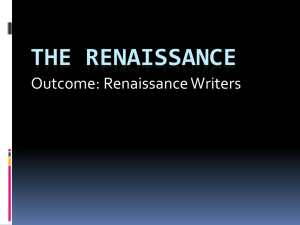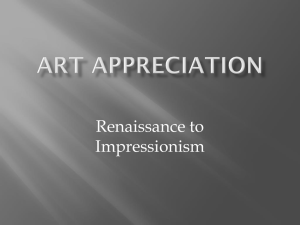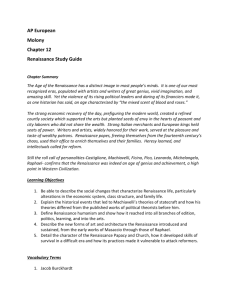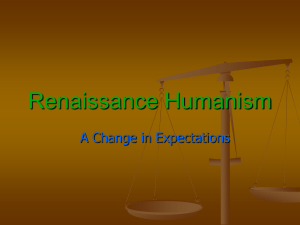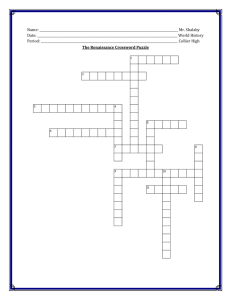The Renaissance Chapter 17 S1 Classical and Worldly Values
advertisement
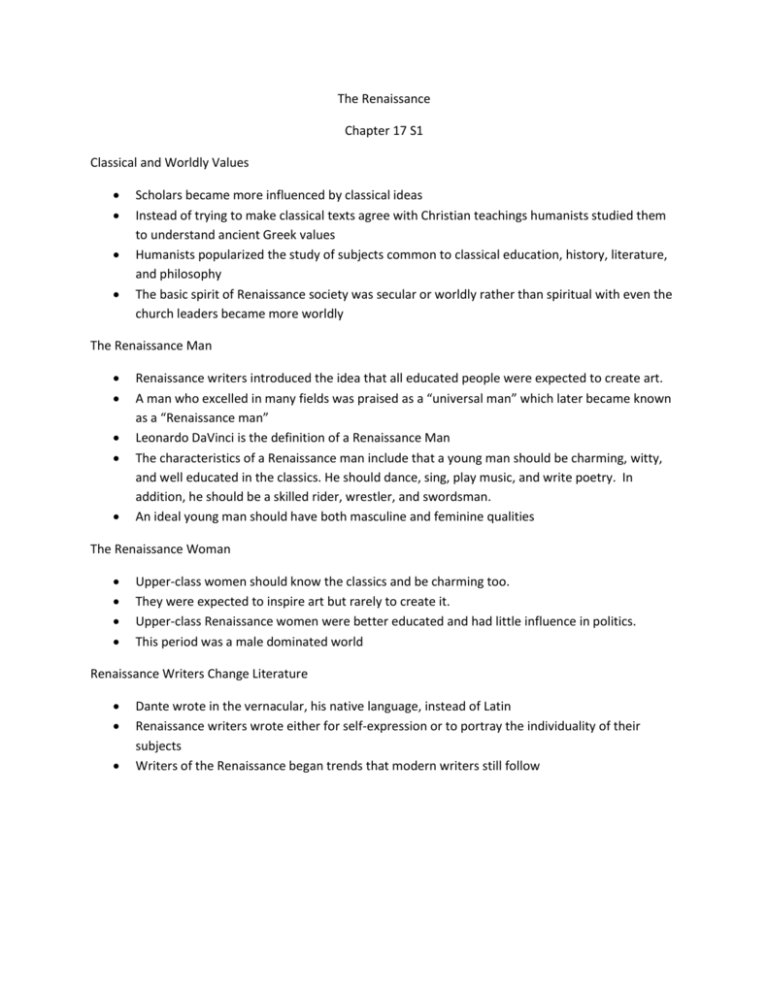
The Renaissance Chapter 17 S1 Classical and Worldly Values Scholars became more influenced by classical ideas Instead of trying to make classical texts agree with Christian teachings humanists studied them to understand ancient Greek values Humanists popularized the study of subjects common to classical education, history, literature, and philosophy The basic spirit of Renaissance society was secular or worldly rather than spiritual with even the church leaders became more worldly The Renaissance Man Renaissance writers introduced the idea that all educated people were expected to create art. A man who excelled in many fields was praised as a “universal man” which later became known as a “Renaissance man” Leonardo DaVinci is the definition of a Renaissance Man The characteristics of a Renaissance man include that a young man should be charming, witty, and well educated in the classics. He should dance, sing, play music, and write poetry. In addition, he should be a skilled rider, wrestler, and swordsman. An ideal young man should have both masculine and feminine qualities The Renaissance Woman Upper-class women should know the classics and be charming too. They were expected to inspire art but rarely to create it. Upper-class Renaissance women were better educated and had little influence in politics. This period was a male dominated world Renaissance Writers Change Literature Dante wrote in the vernacular, his native language, instead of Latin Renaissance writers wrote either for self-expression or to portray the individuality of their subjects Writers of the Renaissance began trends that modern writers still follow Petrarch and Boccaccio Francesco Petrarch was called the father of Renaissance humanism He was also a great poet who wrote in both Latin and Italian Boccaccio wrote the Decameron, a series of realistic, sometimes off-color stories The Decameron presents both tragic and comic views of life. IN its stories, the author uses cutting humor to illustrate the human condition Machiavelli Advises Rulers Machiavelli wrote The Prince which examines how a ruler can gain power and keep it in spite of his enemies. He began with the idea that most people are selfish, fickle, and corrupt Machiavelli was not concerned with what was morally right but with what was politically effective. This is what makes it unique since it is opposite of the church’s opinion Machiavelli argued that in the real world of power and politics a prince must sometimes mislead the people. He believed that as a ruler it was better to be feared than to be liked Vittoria Colonna The women writers who gained fame during the Renaissance usually wrote about personal subjects, not politics



